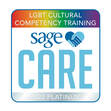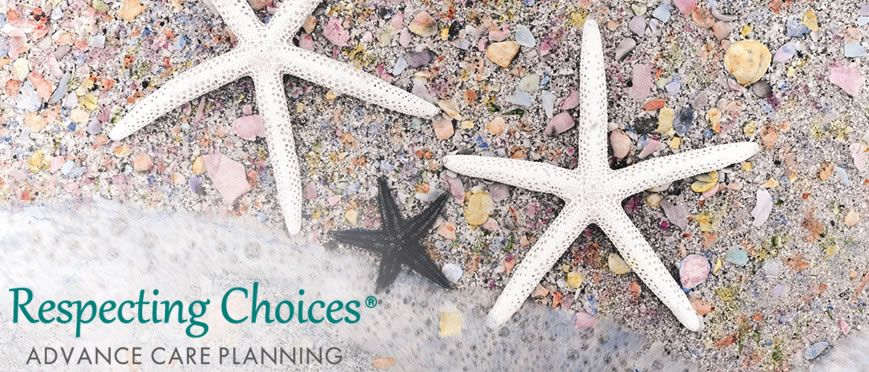Frequently Asked Questions About EOL Doulas
Q: What is an end-of-life doula?
A. End-of-life doulas (EOLDs) provide non-medical, holistic support and comfort to the dying person and their family, which may include education and guidance as well as emotional, spiritual or practical care, from as early as initial diagnosis through bereavement. Services are provided wherever the person calls home. EOLDs collaborate with all other care providers and do not usurp any other team or family member's role. According to the Doula Model of Care, doulas provide non-judgmental support, educate rather than advise, and are resource experts.
Q: What services might EOLDs offer?
A: The services EOLDs may offer include:
Q: What's the difference between an end-of-life doula and a hospice volunteer?
A: End-of-life doulas generally have more extensive training. Hospice volunteer training is very good and is an excellent way to start your journey. However, hospice volunteers can only work with people who are actually receiving hospice services, and we know that the average length of stay on hospice is less that 1 month, often only a few days. Doulas can be involved with clients much further upstream and can be contacted directly with the client. They can perform many more services than a hospice volunteer. Some hospices are including a modified end-of-life doula training in their volunteer training. My experience is primarily with "community EOL doulas" who are working independently, rather than "hospice doulas."
Q: Can you make a living as an end-of-life doula?
A: The short answer is, "Not right away." Newly trained EOLDs will need to educate their community about who they are and what they offer. The movement is growing rapidly; we anticipate that within a few years, if all doulas help spread the word, "end-of-life doula" will be in demand, by individuals, families, and through healthcare organizations such as hospice. Doulas should practice their elevator speech and seek opportunities to give presentations to faith organizations, schools, senior centers, libraries, clubs, etc., to contribute to furthering the movement. It is also advisable to join the National End-of-life Doula Alliance (NEDA) to lend a hand!
Q: Why would someone hire an end-of-life doula?
A. It can be overwhelming to care for someone at home who is very sick. As illness advances, needs become greater. Studies have shown that the affects on caregivers are profound — physically, emotionally, and socially. Hospice care, while extremely helpful, is frequently not initiated until the last few days or weeks, and members of the hospice team are limited in the amount of time they can spend with patients and families. End-of-life doulas can become involved while the individual is still feeling well and wants to get tasks completed. They can be hired to help get "projects" done or to help plan for future needs. Doulas are resource experts, helping clients make the most of services available in the community. I am currently involved in academic research about end-of-life doulas; the coming years will reveal studies about how beneficial EOL doulas are; this research is not available yet.
Q: Is it necessary for end-of-life doulas to be certified?
A: No. There is currently no national, state, or local oversight for end-of-life doulas, or, for that matter, end-of-life doula trainers. Pioneering EOLD trainers have developed their own certification programs, and they differ widely. Anyone calling themself certified has been certified by an individual trainer or training program. However, the National End-of-life Doula Alliance (NEDA) offers a Proficiency Badge that is becoming recognized in the field and is lending standards to the profession. Certification remains an individual choice and lets the doula, and the client, know that the doula's knowledge compares to others who are certified by the same trainer.
Q: How much should I ask for my end-of-life doula services?
A. That depends on many factors, including where you live, what services you offer, and your level of experience. Many EOLDs volunteer for the first 1-3 clients as they are learning. I suggest you consider what birth and postpartum doulas are charging in your area. You might also want to consider one fee for a consultation, such as an initial intake which might be longer, and a different fee for doing a project or education. Most doulas I know are not spending extended hours in the home doing bedside care; it is simply too expensive for clients. Rather, they are helping clients find other resources and line up a circle of support from within their community. Some doulas charge a monthly fee for check-ins as needed.
A. End-of-life doulas (EOLDs) provide non-medical, holistic support and comfort to the dying person and their family, which may include education and guidance as well as emotional, spiritual or practical care, from as early as initial diagnosis through bereavement. Services are provided wherever the person calls home. EOLDs collaborate with all other care providers and do not usurp any other team or family member's role. According to the Doula Model of Care, doulas provide non-judgmental support, educate rather than advise, and are resource experts.
Q: What services might EOLDs offer?
A: The services EOLDs may offer include:
- Advance Care Planning for future healthcare
- Companionship in the home or at the bedside
- Personal care (bathing, dressing, feeding)
- Organizing and coordinating support from family and friends
- Household services such as meal preparation, child or pet care, rides
- Hands-on, non-medical comfort measures, such as guided imagery, breathing and relaxation
- Life review and legacy work
- Use of pets, art, music
- Spiritual support
- Respite care so caregivers can take a much needed break
- Being on-call
- Vigil-ing
- Helping design a ritual or ceremony
- Information about funeral and burial choices, especially home funeral and green burial
- Support during bereavement
Q: What's the difference between an end-of-life doula and a hospice volunteer?
A: End-of-life doulas generally have more extensive training. Hospice volunteer training is very good and is an excellent way to start your journey. However, hospice volunteers can only work with people who are actually receiving hospice services, and we know that the average length of stay on hospice is less that 1 month, often only a few days. Doulas can be involved with clients much further upstream and can be contacted directly with the client. They can perform many more services than a hospice volunteer. Some hospices are including a modified end-of-life doula training in their volunteer training. My experience is primarily with "community EOL doulas" who are working independently, rather than "hospice doulas."
Q: Can you make a living as an end-of-life doula?
A: The short answer is, "Not right away." Newly trained EOLDs will need to educate their community about who they are and what they offer. The movement is growing rapidly; we anticipate that within a few years, if all doulas help spread the word, "end-of-life doula" will be in demand, by individuals, families, and through healthcare organizations such as hospice. Doulas should practice their elevator speech and seek opportunities to give presentations to faith organizations, schools, senior centers, libraries, clubs, etc., to contribute to furthering the movement. It is also advisable to join the National End-of-life Doula Alliance (NEDA) to lend a hand!
Q: Why would someone hire an end-of-life doula?
A. It can be overwhelming to care for someone at home who is very sick. As illness advances, needs become greater. Studies have shown that the affects on caregivers are profound — physically, emotionally, and socially. Hospice care, while extremely helpful, is frequently not initiated until the last few days or weeks, and members of the hospice team are limited in the amount of time they can spend with patients and families. End-of-life doulas can become involved while the individual is still feeling well and wants to get tasks completed. They can be hired to help get "projects" done or to help plan for future needs. Doulas are resource experts, helping clients make the most of services available in the community. I am currently involved in academic research about end-of-life doulas; the coming years will reveal studies about how beneficial EOL doulas are; this research is not available yet.
Q: Is it necessary for end-of-life doulas to be certified?
A: No. There is currently no national, state, or local oversight for end-of-life doulas, or, for that matter, end-of-life doula trainers. Pioneering EOLD trainers have developed their own certification programs, and they differ widely. Anyone calling themself certified has been certified by an individual trainer or training program. However, the National End-of-life Doula Alliance (NEDA) offers a Proficiency Badge that is becoming recognized in the field and is lending standards to the profession. Certification remains an individual choice and lets the doula, and the client, know that the doula's knowledge compares to others who are certified by the same trainer.
Q: How much should I ask for my end-of-life doula services?
A. That depends on many factors, including where you live, what services you offer, and your level of experience. Many EOLDs volunteer for the first 1-3 clients as they are learning. I suggest you consider what birth and postpartum doulas are charging in your area. You might also want to consider one fee for a consultation, such as an initial intake which might be longer, and a different fee for doing a project or education. Most doulas I know are not spending extended hours in the home doing bedside care; it is simply too expensive for clients. Rather, they are helping clients find other resources and line up a circle of support from within their community. Some doulas charge a monthly fee for check-ins as needed.



